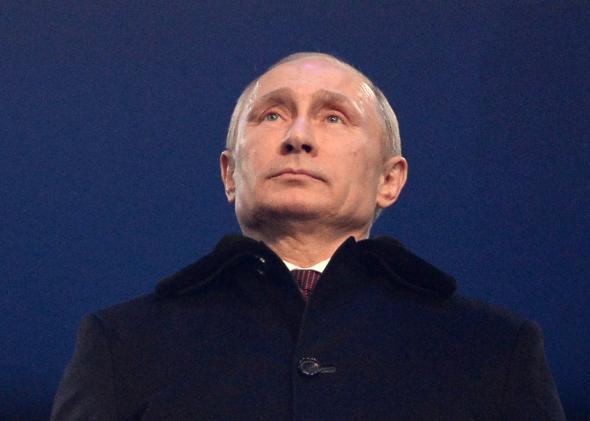Are you an American who believes strongly in human rights and political equality? Has this belief led you to criticize Russia’s heinously homophobic laws and leader? Then congratulations, you’re a jingoistic hypocrite.
That, at least, is the claim of Yale Law professors Ian Ayres’ and William Eskridge’s recent op-ed in the Washington Post, “The U.S. hypocrisy over Russia’s anti-gay laws.” In the piece, Ayres and Eskridge note that eight U.S. states still have so-called “No Promo Homo” laws, which forbid the positive portrayal of homosexuality in public schools. Because these eight states still enforce homophobia in the classroom, the authors argue, Americans really have no right to criticize Russia and should instead focus on repealing their own backward statutes. “As things stand,” Ayres and Eskridge write, “one could imagine Putin responding to U.S. criticism by saying: ‘You hypocrite, first take the plank out of your own eye.’ ”
There is an irritating strain of soft-core cultural relativism that runs through this op-ed, but the bigger problem is the sheer inaccuracy of the central comparison. “No Promo Homo” statutes apply exclusively to public school classrooms, and their reach extends only to the hours of the school day. A gay student in Texas can still promote gay rights, read pro-gay blogs, write pro-gay tweets, and march for equality on her own time with impunity. That’s what the First Amendment is for. But if someone in Russia did such things, she would be arrested, fined, and possibly imprisoned. “No Promo Homo” statutes aim to keep homosexuality out of the classroom; Russia’s new law aims to keep homosexuality out of public discussion altogether—and to keep gay people themselves hidden, segregated, and muffled.
The legal repercussions of the Russian law, moreover, tell only part of the story. As a recent study published in Harvard University’s Health and Human Rights journal confirms, the symbolic bigotry of Putin’s homophobia stretches deep into Russian culture, indicating to homophobes that they can beat, rape, torture, and murder gay people with no consequence. There’s simply no analog to this horrifying outbreak of anti-gay violence in the United States. “No Promo Homo” laws do contribute to young gay people’s anxiety and alienation and may thus indirectly contribute to the heightened suicide risk among gay youth. But that’s a far more attenuated connection than the clear link between Russia’s new law and the recent eruption of homophobic brutality.
Ultimately, Ayres and Eskridge probably wrote their op-ed in good faith: They’re clearly disgusted by America’s own codified bigotry and hoped to seize on Sochi fever to draw attention to their cause. But most Americans are sophisticated enough to direct their ire at Russia’s homophobia without forgiving or forgetting about their own country’s ills. The United States undoubtedly has a checkered track record when it comes to gay rights, and many parts of the country remain inhospitable—even somewhat dangerous—for openly gay people. We needn’t overlook another country’s vicious homophobia merely because some of our states remain lodged in a bygone era of bigotry.
